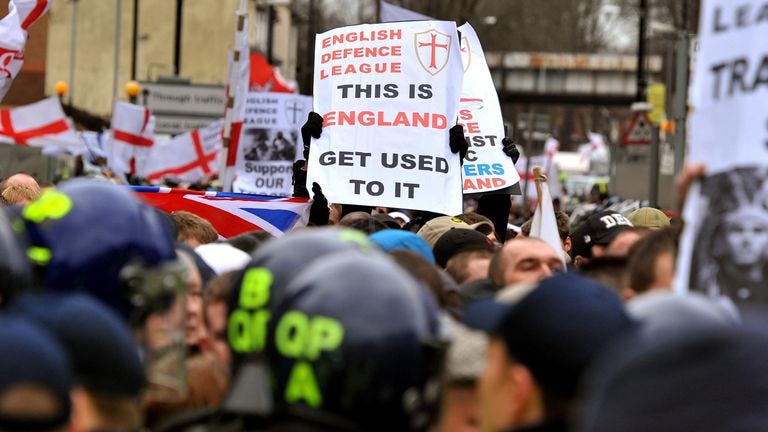“But me? I carry my dad’s legacy; my parent’s sacrifices; my family’s hopes for a good life against the undercurrents of racism in a place where people are surprised I have succeeded, am succeeding. I carry all of that every day, but it’s a weight I’ve grown familiar with. Except for the few moments when it does bury me.”
What does it mean to be a practicing, visible Muslim in Britain today?
For Hanan Ali, a Somali Muslim sixth former living in London, the answer to this question has become increasingly clear. Just weeks away from a crucial exam that will determine her future, her world is shattered when she discovers that her friend has been murdered—by someone who shares her faith. Now, Hanan must decide whether she wants to lay low in the aftermath of the tragedy or stand up against those who stereotype all Muslims in the same negative light.
Ayaan Mohamud’s debut YA novel, You Think You Know Me, delves into the intersection of identity, faith, and race, highlighting the experiences of Black Muslims in Britain. While there is much to unpack in the novel, the story powerfully captures the struggles and resilience of a young woman navigating Islamophobia, personal faith, and the search for belonging in an increasingly intolerant world.
“I’m not an exception. I can’t be an exception because there is no rule that says people like me can’t do well. Or that people like me are inherently evil. There is no rule that can paint a whole group in a single colour, becuase that would be impossible. That would be prejudiced and bigoted and cruel.”
The most prevalent themes explored in this novel are those of loss, grief, and courage. From the loss of the motherland to civil war to the tragic, untimely deaths of her father and most recently her friend, Hanan’s ability to cope with grief is at an all-time low. Things rapidly go from bad to worse when word gets out that the perpetrator was Muslim. As a student at a predominantly white grammar school, Hanan’s experiences of Islamophobia and discrimination are intensified following this news. Not only does she have to deal with everyday microaggressions and bullying, but she must also face the collective blame placed upon her and her community.
There seems to be a constant expectation for certain groups, such as Muslims, to publicly condemn the actions of aberrant individuals who happen to share their faith. Not only is this expectation illogical and unjust, but it also places an undue burden on such groups to prove their innocence. Breaking free from the shackles of societal expectations and reclaiming one’s identity is a colossal undertaking, one that requires immense courage, especially at a young age. However, Hanan realises that the old Somali saying her mother taught her, Af Daboolan dahab waaye (A closed mouth is gold), does not mean she shouldn’t stand up for herself.
Mohamud critiques several prevalent issues in Western society, such as biased media reporting, the 'Token Muslim' trope, intergenerational racism and hate crimes against minorities. It is clear that many events in the novel are inspired by real-life occurrences, such as the UK’s infamous ‘Punish a Muslim Day’ and the portrayal of White aggressors as 'mentally ill' in contrast to their Brown and Black 'terrorist' counterparts.
“I may be many things, but I can promise you that one thing I will never be is your good Muslim. The fact is my being doesn’t belong to any of you.”
The hypocrisy of Western media in reporting crime is evident in the stark contrast between how White perpetrators are often humanised, while Black and Brown individuals are demonised. Mohamud shines a light on this discrepancy through major plot points in the novel, showing how biased narratives reinforce harmful stereotypes. Not only is this the case for domestic crimes, but also in international reporting. The discrepancy between the reporting of literal war crimes by Western media compared to the acts of those resisting colonisation and genocide highlights a deeply ingrained bias. Brown and Black people are never allowed to be victims even when their homes and communities are being obliterated.
You Think You Know Me is a character-driven novel. Hanan begins as a quiet, studious eldest daughter who prefers to ignore the immature taunts and jibes of her peers rather than confront them. By the end of the book, Hanan, though retaining her calm and collected nature, gains the courage to publicly speak out against the hatred she has experienced at the hands of her peers. It is heartening to witness her transformation, as we all know that speaking out against oppression and challenging the status quo requires strength and bravery.
The story also explores various interpersonal dynamics and relationships, namely between siblings, friends, students and teachers. The strongest bond in this book is undoubtedly between Hanan and her twin brother, Hussein. It was heartening to read about the intricacies and complexities of the brother-sister bond as it’s one many of us know well. The subtle yet significant shift in Hanan and Hussein’s dynamic made the story more realistic and relatable.
The story also demonstrates the impact that a single-parent household and poverty can have on young people at crucial stages of their lives. This is most notably illustrated through the character of Leyla, Hanan’s mother, who struggles to make ends meet for her large family after the tragic and untimely passing of her husband. The absence of a solid foundation can create fractures within a family, leading a child to feel unguided and make questionable life choices.
Hanan’s friendship group is diverse and their loyalties to one another are tested in various ways throughout the book. The story highlights the importance of friendship and how it should be grounded in empathy, support and understanding in order to ensure longevity. Claiming to be someone’s friend means very little when one’s actions don’t back it up, and this is clearly shown when some of Hanan’s friends fail to be there for her during a challenging time. The themes of betrayal and loyalty are prevalent throughout the book, not just in regard to friendship, but also family bonds.
“For some reason, I was scared, terrified, that her knowing I prayed to God every day would mean the end of our friendship. I was scared it would make me the kind of different I could never come back from.”
The Muslim representation in this novel is truly outstanding. From a no-nonsense take on the hijab to Qur’anic references and prayer, You Think You Know Me is a breath of fresh air in the otherwise murky landscape of contemporary Muslim literature. It is often difficult to find a novel that so aptly captures the reality of the British Muslim struggle, and it was a delight to finally read a story grounded in reality that speaks to the lived experiences of many young Muslims in the UK.
I found this excerpt particularly powerful during a critical point in the novel:
“In the Book that people fear but don’t understand, God says —
When the sky breaks apart / And when the stars fall scattering / And when the seas are erupted
that
A soul will know what it has put forth and kept back
I think about my soul, what it holds for everyone to see and for no one to see, in case this is the end.”
Although the story had a lot going on with various subplots, it remained cohesive, engaging, and easy to follow. For a debut novel, this was excellent and I look forward to reading more of Ayaan Mohamud’s work. I also appreciate that she added a glossary of Somali and Arabic words and phrases at the end!







